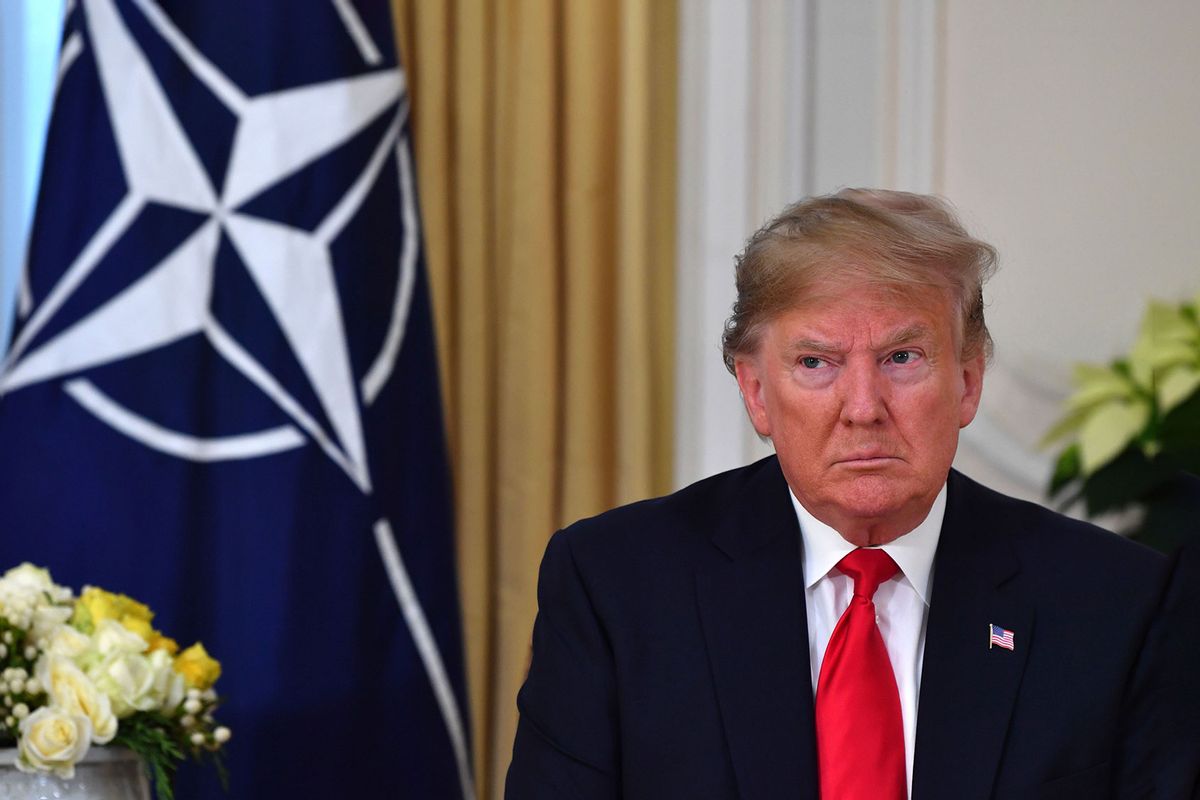Donald Trump has indicated that, if elected president in 2024, he will consider pulling the United States out of the North Atlantic Treaty Organization (NATO) if the group does not acquiesce to his demands. The former president has previously attacked NATO allies and discussed withdrawing from the transatlantic organization altogether, a move which ostensibly came about as a result of his reported relationship with Russian President Vladimir Putin.
Rolling Stone reported that Trump has already said he does not want a hypothetical second administration to be full of "NATO lovers," per two sources who have heard him make such remarks. The sources also shared that the ex-president has suggested that he is open to the idea of yanking the U.S. from NATO, although he is willing to reconsider if the group meets various demands of his, including his want for non-American members to increase their defense spending and a fundamental scrutinizing of the bedrock principle that an attack on one member is equivalent to an attack on all. Rolling Stone also reported that Trump, while in office, repeatedly derided Article 5, NATO's collective defense clause, arguing against starting "World War III" in the name of smaller NATO countries' sovereignty.
“Donald Trump's threats to weaken NATO and side with Vladimir Putin undermine America’s strength on the global stage and threaten our national security. As president, Donald Trump spent four years cozying up to dictators and making our country less safe," said Biden campaign spokesman Ammar Moussa.
Dr. Aaron Stein, a Black Sea Fellow at the Foreign Policy Research Institute, told Rolling Stone that Trump's plan would be a "tremendously stupid endeavor" and added that "trading away allies based on ignorance, and Trump is ignorant about this issue, is just silly for broader U.S. national security."
“As this, and the damning tapes of Trump/Pratt conversation show, Donald Trump is the biggest internal threat to America’s national security we have had since the Civil War,” warned political scientist Norman Ornstein.



Shares